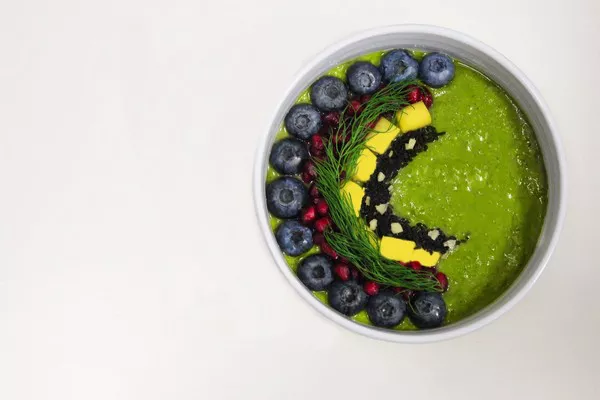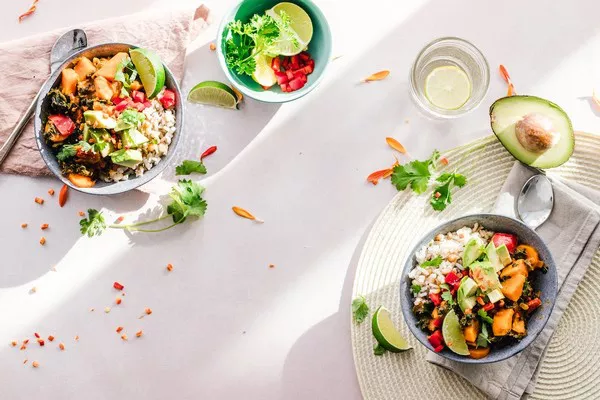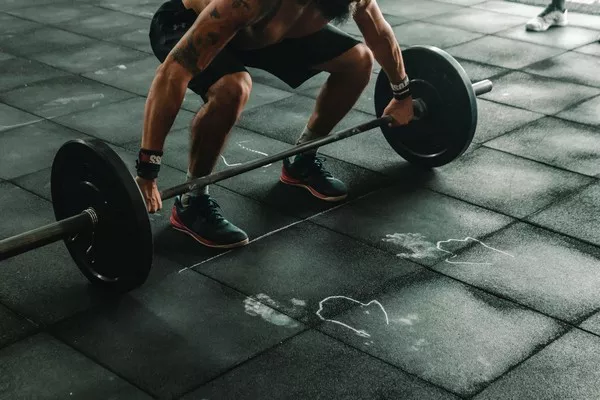Bananas, with their convenient packaging and natural sweetness, have long been a beloved snack. As dietary awareness grows, questions about their nutritional value, including protein content, have arisen. In this comprehensive article, we delve into the topic of whether bananas are high in protein, exploring their actual protein content, their role in a balanced diet, and the broader nutritional benefits they offer.
SEE ALSO: Protein Content in Boiled Eggs: A Nutritional Guide
Bananas in the Nutritional Spotlight
Bananas, often referred to as a “powerhouse of nutrients,” are indeed rich in essential vitamins, minerals, and dietary fiber. They are renowned for being a quick and portable energy source, making them a popular choice among athletes and those seeking a natural energy boost. However, when it comes to protein content, bananas are not as prominent as some other protein-rich foods.
Protein Content of Bananas
While bananas contribute a range of nutrients, including vitamins B6 and C, potassium, and dietary fiber, their protein content is relatively modest. On average, a medium-sized banana contains around 1 gram of protein. This protein content is significantly lower than that found in protein-rich foods like meat, dairy, legumes, and nuts. Bananas do contain amino acids, the building blocks of protein, but they are not considered a primary source of protein due to their low content. However, the amino acids they provide can still play a role in supporting various bodily functions.
It’s important to recognize that while bananas may not be high in protein, they can complement a protein-rich diet by providing essential nutrients, energy, and dietary fiber. They serve as a valuable source of carbohydrates, which are essential for replenishing glycogen stores and supporting overall energy levels.
The Role of Bananas in a Balanced Diet
While bananas may not be a significant source of protein, they hold a unique position in a balanced diet:
1. Energy Source: Bananas are rich in carbohydrates, particularly natural sugars like glucose, fructose, and sucrose. These sugars provide a quick source of energy, making bananas an excellent choice for a pre- or post-workout snack.
2. Dietary Fiber: Bananas contain dietary fiber, which aids in digestion and promotes a feeling of fullness. This fiber contributes to healthy gut function and can assist in maintaining a balanced diet.
3. Micronutrient Richness: Bananas are packed with essential vitamins and minerals, including vitamin C, vitamin B6, and potassium. These nutrients contribute to overall health and well-being.
4. Hydration: Bananas have a high water content, making them a hydrating choice, especially in warmer climates or after physical activity.
Other Fruits High in Protein
While most fruits are not known for their high protein content compared to other food groups, there are a few fruits that contain relatively higher amounts of protein. Here are some examples:
1. Guava: Guava stands out as one of the fruits with higher protein content. It contains about 4.2 grams of protein per cup (approximately 250 grams) of raw guava.
2. Blackberries: Blackberries are relatively higher in protein compared to many other fruits. They provide around 2 grams of protein per cup (approximately 144 grams).
3. Kiwi: Kiwi is not only a great source of vitamin C but also contains some protein. One medium-sized kiwi contains about 1 gram of protein.
4. Jackfruit: Jackfruit is a unique fruit that contains more protein than many other fruits. It provides around 2.5 grams of protein per cup (approximately 165 grams) when cooked.
5. Apricots: Apricots offer a moderate amount of protein for a fruit. About 4-5 apricots provide around 1.5 grams of protein.
6. Avocado: Avocado is often considered a fatty fruit due to its healthy monounsaturated fats, but it also contains some protein. Half of a medium-sized avocado contains around 1 gram of protein.
7. Pomegranate: Pomegranate seeds are not only rich in antioxidants but also contain a small amount of protein. One cup of pomegranate seeds provides about 3 grams of protein.
8. Mulberries: Mulberries are dried fruits that have a relatively higher protein content. They offer around 10 grams of protein per 1/2 cup (approximately 70 grams) when dried.
9. Dried Figs: Dried figs are another dried fruit option with a moderate protein content. About 4-5 dried figs contain around 2-3 grams of protein.
It’s important to note that while these fruits contain more protein compared to many other fruits, they are still not major sources of protein when compared to other food groups like meats, dairy, legumes, and nuts. If you’re looking to increase your protein intake, it’s a good idea to incorporate a variety of protein-rich foods into your diet.
SEE ALSO: Protein-Rich Fruits: A Surprising Exploration
Balancing Protein Intake
While bananas aren’t a primary source of protein, they can still be part of a balanced diet that includes adequate protein intake from other sources. Protein is essential for various bodily functions, including muscle growth and repair, immune function, hormone production, and enzyme activity. Depending on individual dietary needs and goals, incorporating a variety of protein-rich foods such as lean meats, poultry, fish, dairy, eggs, legumes, nuts, and seeds is important.
[inline_related_posts title=”SEE ALSO” title_align=”left” style=”list” number=”3″ align=”none” ids=”1340,1291,1257″ by=”categories” orderby=”rand” order=”DESC” hide_thumb=”no” thumb_right=”no” views=”no” date=”yes” grid_columns=”1″ post_type=”” tax=””]
Delicious Recipes with Banana High in Protein
Here are two delicious and protein-rich recipes that incorporate bananas:
1. Banana Protein Pancakes
Ingredients:
- 2 ripe bananas, mashed
- 2 eggs
- 1/2 cup rolled oats
- 1 scoop of your favorite protein powder (whey, plant-based, etc.)
- 1/2 teaspoon baking powder
- 1/2 teaspoon vanilla extract
- Pinch of salt
- Coconut oil or cooking spray for the pan
Instructions:
In a bowl, mash the ripe bananas until smooth.
Add the eggs and vanilla extract to the mashed bananas and mix well.
In a separate bowl, combine the rolled oats, protein powder, baking powder, and salt.
Gradually add the dry mixture to the banana and egg mixture, stirring until well combined.
Heat a non-stick skillet or griddle over medium heat and lightly grease with coconut oil or cooking spray.
Pour the pancake batter onto the skillet to form pancakes of your desired size.
Cook until bubbles form on the surface, then flip and cook the other side until golden brown.
Serve the banana protein pancakes with your favorite toppings, such as Greek yogurt, fresh berries, nuts, or a drizzle of honey.
2. Peanut Butter Banana Smoothie Bowl
Ingredients:
- 2 ripe bananas, frozen
- 1/2 cup Greek yogurt
- 1/4 cup milk (dairy or plant-based)
- 1 tablespoon peanut butter
- 1 scoop of protein powder (peanut butter or vanilla flavor works well)
- Toppings: sliced banana, granola, chopped nuts, chia seeds
Instructions:
In a blender, combine the frozen bananas, Greek yogurt, milk, peanut butter, and protein powder.
Blend until smooth and creamy. Add more milk if needed to achieve your desired consistency.
Pour the smoothie into a bowl.
Top with sliced banana, granola, chopped nuts, and a sprinkle of chia seeds for added texture and nutrition.
Enjoy your protein-packed peanut butter banana smoothie bowl with a spoon!
SEE ALSO: Creating Your Own Nutrient-Packed Protein Shakes: A Step-by-Step Guide
Conclusion
Bananas offer a range of nutritional benefits, but being high in protein isn’t one of them. While they may not provide substantial protein content, they contribute essential nutrients, energy, and dietary fiber to your diet. Incorporating bananas into your meals and snacks can support overall health and provide a natural energy boost. Remember that a balanced diet includes a diverse array of nutrient sources, and while bananas may not be a protein powerhouse, they are still a valuable addition to a well-rounded nutritional plan.
[inline_related_posts title=”Related Topics” title_align=”left” style=”list” number=”3″ align=”none” ids=”1841,1836,1803″ by=”categories” orderby=”rand” order=”DESC” hide_thumb=”no” thumb_right=”no” views=”no” date=”yes” grid_columns=”1″ post_type=”” tax=””]



































